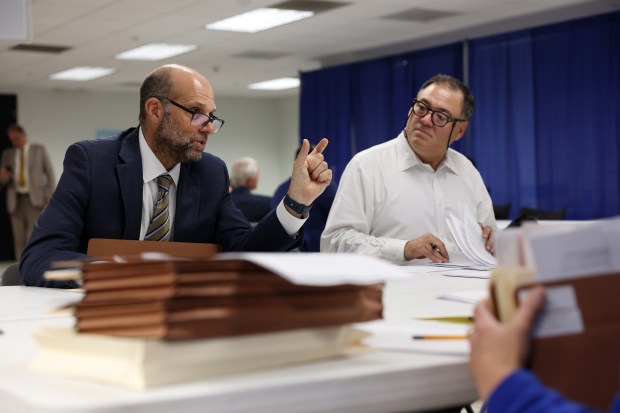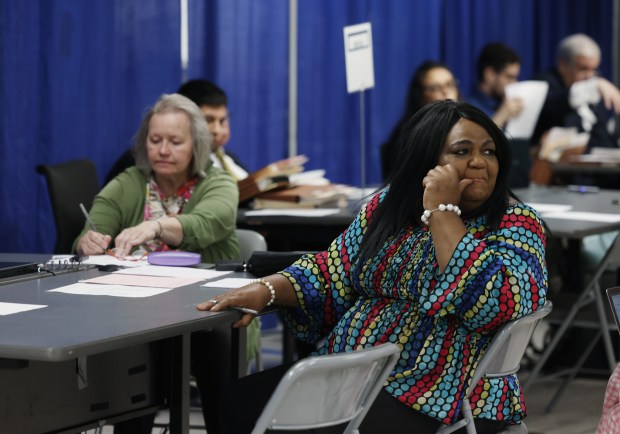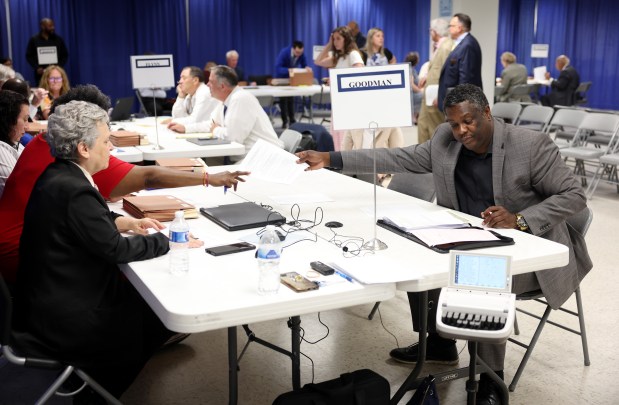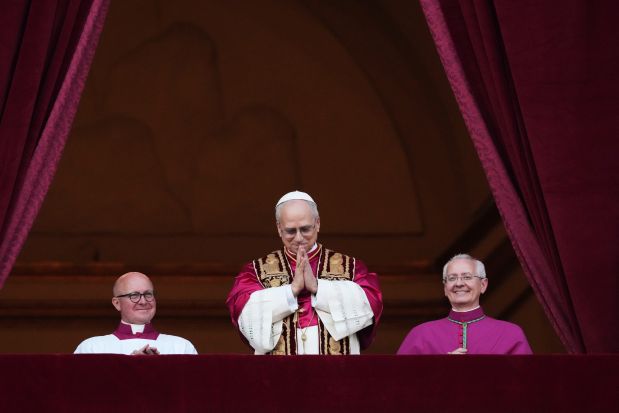The crowded field of candidates vying to win one of ten seats on Chicago’s first elected school board in the fall narrowed slightly Tuesday, with three candidates filing withdrawal papers, trimming the race down to 44 candidates, according to the Chicago Board of Elections.
Among 27 candidates subject to challenges to the validity of their nomination petitions, nonprofit administrator Danielle Wallace, educator Darius Dee Nix and former Chicago Public Schools principal James Walton have dropped out of their respective races in the 6th, 8th, 10th districts.
Like all of the challenges filed with the Board of Elections, objections to their candidacies involve alleged deviations from the Illinois election code. To get on the ballot, school board candidates are required to meet a number of requirements, including gathering a minimum 1,000 signatures of registered voters residing in the district they’re seeking to represent, submitting a statement of their candidacy, an optional oath of loyalty to the United States, and a statement disclosing their economic interests.
As objection hearings unfolded throughout the day at the Chicago Board of Elections, some candidates expressed confidence their names would still be on the ballot when voters head to the polls for the general election on Nov. 5., while others lamented their campaigns could be derailed by potentially politically motivated objections.
In the hotly contested 10th district, Brandon McGill-Ware, a volunteer for Che “Rhymefest” Smith told the Tribune he was asked to file objections against five of Smith’s six remaining opponents in support of the recording artist and community advocate’s campaign. “I’m with him in this process no matter what,” said McGill-Ware, who also circulated petitions for Smith. “Whatever he needs me to do in the campaign that’s gonna help us win, I’ll do it,” he added, declining to comment further.
Facing ballot challenges in the 2nd district, Daniel Kleinman, a community organizer and former local school council member at Senn High School and Walt Disney Magnet School, said his team was frustrated but prepared to roll with the punches. “The process can be abused,” he said of objections. “It can be used to waste time and resources – time that you’re checking and rechecking (signatures) is time that you’re not calling supporters,” he said.
But, Kleinman added, “You can’t hate the game that you’re playing…It’s just curious how any of them can be non-genuine when we were standing in front of them,” he said of people who signed his nomination petition.
Attorney Andrew Finko’s clients include both a candidate facing objections, Karin Norington-Reaves, and people who filed them against 3rd district candidate Kirk J. Ortiz.
Illinois’ reliance on “pen and ink on paper” is outdated, Finko said. “The signature is not the gold standard of somebody’s identity that it used to be, plus everybody’s signing in a hurry on a clipboard, so your signature is going to look different,” he said.
But until an objection is filed, the Board is only required to count the number of signatures, not verify whether they are genuine or belong to a district resident – meaning reviews for compliance with election code largely falls to objectors, according to Finko. “There’s a presumption of validity. You can have 1,000 signatures that may or may not be within the candidates’ district. But if nobody checks, then they’re all presumed valid,” he said.
‘Trying to stay on the ballot’
Over the course of the hearings which took place on the bottom floor of the Cook County administrative building in the Loop, with tables set up for each hearing officer to preside over the candidates and objectors, status updates were scheduled July 15.
In most cases, the Chicago Board of Elections will commence a line-by-line review Wednesday of candidates’ obtained signatures. Max Bever, the Board’s director of communications said checking signatures for validity can be an arduous process, involving handwriting experts.
Most of the seven candidates present Tuesday came with legal counsel, with the exception of 5th district candidate Jousef M. Shkoukani, a lawyer, who represented himself at his hearing. The objector in his case, Mary Russell Gardner, also filed objections to three other candidates.
“It’s incredibly frustrating because one person (an objector) is potentially going to undermine me,” Shkoukani said of the objection. “To receive 1,067 signatures required nonstop efforts after work for 3-4 hours each day; six to nine grocery stores, dog parks – it was an amazing experience and I learned a ton along the way and I don’t know how many other candidates are actually going out and trying to receive all of their signatures themselves I’m just trying to stay on the ballot,” he said. ”Maybe it’s the fact that I care deeply about our education system in the U.S., especially here in my backyard where my wife and (I), we want to send our future kids one day,”Shko
A ‘surprising’ volume of objections
Christopher Berry, a professor at the Harris School of Public Policy at the University of Chicago, said while objections to candidates is a “time honored Chicago tradition,” he’s surprised at the volume of objections, which as of Tuesday afternoon sits at 34.
“My guess is that there’s some organized political entity behind this,” Berry said. “I wasn’t really expecting it in the school board election because we tend to think of this as low stakes – it doesn’t feel like something your ordinary sort of inexperienced, novice school board candidate is doing on their own.”

The only 10th district candidate not subject to an objection, Adam Parrott-Sheffer, has secured his place on the ballot. But the former CPS principal said he remains concerned that objections were levied against less well-connected or politically-savvy candidates.
“I worry we’ll have districts that may not have a choice, or we’ll have districts where, instead of having a couple of different options, it’s really going to be between two people,” said Parrott-Sheffer. “And I don’t think that that was our goal when the elected school board was passed. It was to really elevate the voices of folks, make sure that we’ve got some rich discussion and rich diversity in our choices for who helps the vision for our schools.”
In two districts, the 3rd and 7th, every candidate faces at least one objection.

Fellow 10th district candidate, lawyer Karin Norington-Reaves has navigated the objection process before while running to represent Illinois’ 1st congressional district in 2022. The objections are less about “ensuring that there’s quality candidates available to voters” than they are telling about the competitive nature of the race, she said on a phone call with the Tribune.
“This is the district that produced Harold Washington, this is the district with Bobby Rush – this is a politically active district, and this part of town is home to a significant number of Black and brown educations,” she said. “These are wards that represent folks with solid middle-class values and folks who might be a bit more civic-minded.”
Former Chicago Public Schools teacher Rosita Chatonda, founder of the Chicago Alliance of Urban School Educators, who received three objections, said she plans to continue with the next steps of the hearing process and hopes to remain on the 10th district ballot. She said that while she expected objections, helming a response is daunting.
“We’re community people,” said Chatonda. “And we really don’t have a huge team working behind us.”




